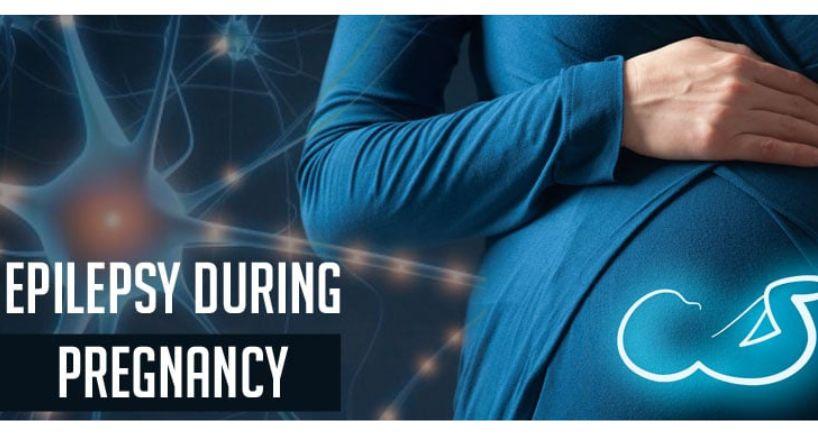
Understanding Seizures During Pregnancy: Risks, Management, and Support
Pregnancy is a remarkable time in a woman which is connected with anticipation of childbirth, but it also may be accompanied by various health complications. Among them, seizures definitely should be named. The areas of focus in relation with the health necessities of pregnant women include risk factors that pregnant women have towards seizure, the ways of moderating these risks, and the intervention accessible to pregnant women seizer sufferers.
Understanding Seizures
Epilepsy is a medical condition where a person has repeated seizures or fits. These are sudden, uncontrolled electrical activity in parts of the brain. They can range from minor, brief, and simple lack of attention or minute myoclonic twitches to severe convulsions.
Consequences related to seizures in pregnancy
Maternal Health Risks: The effects of seizures can be particularly dangerous to the mother. They can cause falls, injuries, or even status epilepticus which is the occurrence of seizures one after another without any intermission of consciousness and it is very dangerous.
- Fetal Health Risks: The fetus that is in the process of developing can also be affected by maternal seizures. Some of the dangers include: suffocation during a seizure can cause developmental problems or even death to the baby or stillbirth. Also, the drugs taken in order to prevent the seizures may be prohibited during pregnancy since they may lead to congenital abnormalities.
- Pregnancy Complications: Epileptic women are more likely to experience some complications like preeclampsia, premature labor, and placental abruption in their pregnancy. These conditions can also affect pregnancy and childbirth by adding to the challenges that may arise during this process requiring the process to be monitored and managed comprehensively.
Seizure Management in Pregnancy
- Epilepsy is best managed during pregnancy through the cooperation of neurologists obstetricians and many other professionals.
Preconception Counseling: Youths and women with special focus to those in the child bearing age are encouraged to seek preconception care. This makes it possible for the caregivers to assess the seizures, adjust the medications and also inform the woman on the possible reaction that the medication might cause to her and the fetus during pregnancy. - Medication Management: The antiepileptic drugs to be used when a woman is pregnant have to be determined with consideration. The effects of some AEDs are teratogenic so the primary care aim is to avoid such consequences while retaining seizure control. Hypnotics are generally given preference because they are not as risky as other drugs. Supervision of the blood levels of these drugs is an important aspect of management, as it contributes to the determination of the adequate dosages.
- Prenatal Care: Every woman with epilepsy requires the proper antenatal care. Frequent check-ups enable the doctor to assess both the health of the mother and fetal health in case of complications that are quickly detected and treated. The care includes giving the expectant woman ultrasounds, fetal heart rate monitoring, and assessments of fetal growth.
- Seizure Triggers and Lifestyle Modifications: There are many factors or events, which, when avoided, can help prevent the experience of seizures. Some of the causes of the conditions may include lack of sleep, pressure, and types of foods or liquids that one takes. Many pregnant women should practice good sleep, reduce stress, and have a proper diet. It is also important to drink a lot of water and adhere to a regular schedule of taking the prescribed medications.
- Delivery Planning: This means that the kind of delivery that should be observed by women with epilepsy should be well planned. Vaginal delivery should be allowed and preferred most of the time; however, C-sections may be required under some circumstances such as— poorly controlled seizures and any other complications. Knowing this, an individualized birth plan must be drawn out with the concerned healthcare providers.
Coping Resources for Pregnant Women with Seizures
Healthcare Team: Neurologists, obstetricians, and midwives should all be involved in the care of female epilepsy with childbearing capabilities. They give advice and manage individuals’ physical well-being, sometimes offering help when appropriate.
Family and Friends: One can emphasize the role of family and friends’ support as one of the factors that make a huge difference. Being informed of what the patient may go through and how they can be of help, for instance by assisting with chores, as well as going with the patient to appointments, can play a role in easing stress levels
Support Groups: Support groups are beneficial as a number of people can be physically present and discuss or share their experiences or log on to the virtual community. Sharing experiences with people who are in similar situations can help emotionally and give advice on what to do.
Educational Resources: Since epilepsy patients especially women should continue practicing their activities as usual during pregnancy, proper and comprehensive information about epilepsy and pregnancy should be made available primarily via educational materials. Many groups can offer important data as well as advice on the administration of epilepsy in pregnancy.
Popular Searches :
Hospitals: Cancer Hospital in Delhi | Best Heart Hospital in Delhi | Hospital in Amritsar | Hospital in Ludhiana | Hospitals in Mohali | Hospital in Faridabad | Hospitals in Gurgaon | Best Hospital in Jaipur | Hospitals in Greater Noida | Hospitals in Noida | Best Kidney Hospital in Kolkata | Best Hospital in Kolkata | Hospitals in Rajajinagar Bangalore | Hospitals in Richmond Road Bangalore | Hospitals in Nagarbhavi Bangalore | Hospital in Kalyan West | Hospitals in Mulund | Best Hospital in India | | Cardiology Hospital in India | Best Cancer Hospital in India | Best Cardiology Hospital in India | Best Oncology Hospital In India | Best Cancer Hospital in Delhi | Best Liver Transplant Hospital in India
Doctors: Dr. Rana Patir | Dr. Rajesh Benny | Dr. Rahul Bhargava | Dr. Jayant Arora | Dr. Anoop Misra | Dr. Manu Tiwari | Dr. Praveer Agarwal | Dr. Arup Ratan Dutta | Dr. Meenakshi Ahuja | Dr. Anoop Jhurani | Dr. Shivaji Basu | Dr. Subhash Jangid | Dr. Atul Mathur | Dr. Gurinder Bedi | Dr. Monika Wadhawan | Dr. Debasis Datta | Dr. Shrinivas Narayan | Dr. Praveen Gupta | Dr. Nitin Jha | Dr. Raghu Nagaraj | Dr. Ashok Seth | Dr. Sandeep Vaishya | Dr. Atul Mishra | Dr. Z S Meharwal | Dr. Ajay Bhalla | Dr. Atul Kumar Mittal | Dr. Arvind Kumar Khurana | Dr. Narayan Hulse | Dr. Samir Parikh | Dr. Amit Javed | Dr. Narayan Banerjee | Dr. Bimlesh Dhar Pandey | Dr. Arghya Chattopadhyay | Dr. G.R. Vijay Kumar | Dr Ashok Gupta | Dr. Gourdas Choudhuri | Dr. Sushrut Singh | Dr. N.C. Krishnamani | Dr. Atampreet Singh | Dr. Vivek Jawali | Dr. Sanjeev Gulati | Dr. Amite Pankaj Aggarwal | Dr. Ajay Kaul | Dr. Sunita Varma | Dr. Manoj Kumar Goel | Dr. R Muralidharan | Dr. Sushmita Roychowdhury | Dr. T.S. MAHANT | Dr. UDIPTA RAY | Dr. Aparna Jaswal | Dr. Ravul Jindal | Dr. Savyasachi Saxena | Dr. Ajay Kumar Kriplani | Dr. Nitesh Rohatgi | Dr. Anupam Jindal |
Specialties: Heart Lung Transplant | Orthopedic | Cardiology Interventional | Obstetrics & Gynaecology | Onco Radiation | Neurosurgery | Interventional Cardiology | Gastroenterologist in Jaipur | Neuro Physician | Gynecologist in Kolkata | Best Neurologist in India | Liver Transfer



















